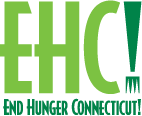SHARE >

The Child Tax Credit (CTC) is a federal tax benefit for American taxpayers with children under the age of 17 that provides a tax refund to parents per each qualifying child. The refundable amount each family is entitled to is determined by numerous eligibility factors, including household income.
In 2021, tens of millions of households with children received an enhanced federal CTC. As a direct result of the enhanced CTC, food insufficiency dropped by 25 percent and poverty dropped by 46 percent among households with children nationwide. After the end of the expanded CTC and other pandemic-era relief provisions, child poverty and food insufficiency among households with children skyrocketed.
Overwhelmingly, data shows that families spend their CTC dollars on necessities, like food. During the temporary CTC expansion in 2021, data showed that 68% of Connecticut families spent at least some of their CTC funds on food, with 56% stating they spent all their CTC funds on food.
Congress must pass an expanded CTC by means of an end of year tax or spending package, or other legislative vehicle to help lift Americans out of hunger and poverty.
Alongside several of our fellow advocates, including the Food Research and Action Center (FRAC), we are calling on Congress to fight hunger and poverty and pass an expanded and inclusive refundable Child Tax Credit that focuses on including the 19 million children currently left out of the full credit. Any tax package needs to include support for families that have been left behind, not just corporations. This refundable tax credit is vital to helping families put food on the table. “82% of voters favor a Child Tax Credit that is fully available for all low- and middle-income families,” according to recent voter polling conducted by Hart Research Associates.
Families are facing many challenges that make it difficult to make ends meet such as inadequate wages and benefits, inequitable economic growth, and lack of job supports such as access to child care. These obstacles — often driven by racial and systemic barriers — increase hunger and poverty rates. Federal tax credits provide critical support for millions of families and individuals every year, supplementing low wages or economic hardships.
Send a letter to your Representative to urge them to support enhancing the Child Tax Credit now by clicking here.
End Hunger CT! adapted some language for this post from CTC action alerts provided by Feeding America and the Food Research and Action Center.
Feature Image by Nathan Anderson on Unsplash
About us: End Hunger CT! works statewide to eliminate hunger and promote healthy nutrition through outreach, public education, and advocacy. EHC! offers SNAP assistance, nutrition program promotion, doubles SNAP at farmers’ markets, and more to help CT residents in need. To learn more about our services, click here.
Have any questions? Contact our Communications Coordinator, Kimberly Nguyen, at knguyen@endhungerct.org.


